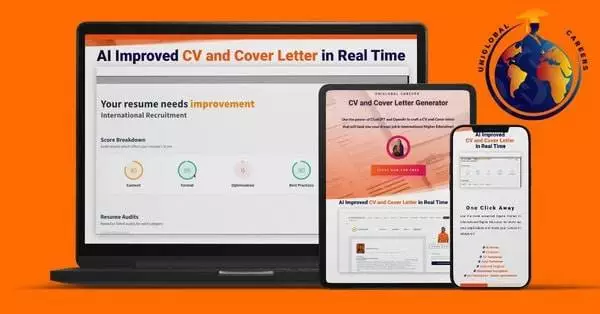Interested in working in the study abroad industry? Congratulations on taking the first step towards a rewarding career in international education! As with any job interview, it’s essential to be prepared for the questions you may encounter. In this article, we will guide you through the most common interview questions forOverseas Employment Opportunities helping you to ace your interview and make a lasting impression.
Understanding the Study Abroad Sector
If you’re considering a job in study abroad, it’s crucial to have a deep understanding of the industry. Before diving into the interview questions, let’s take a moment to explore the study abroad sector.
The Overseas Employment Opportunities sector is a dynamic and ever-evolving field that offers students the opportunity to expand their horizons and gain a global perspective. It encompasses a wide range of programs and initiatives aimed at promoting international education Overseas Employment Opportunities and cultural exchange.
Study abroad experiences have become increasingly important in today’s interconnected world. They provide students with the chance to immerse themselves in different cultures, learn new languages, and develop a global mindset. These experiences not only enhance their academic and personal growth but also equip them with the skills and knowledge necessary to thrive in a globalized workforce.
The Importance of International Education

First and foremost, it’s essential to grasp the significance of international education. Understanding why Overseas Employment Opportunities experiences are valuable can help you align your goals with the organization you’re interviewing with.
International education goes beyond the classroom walls and textbooks. It offers students the opportunity to step out of their comfort zones and experience the world firsthand. By living and studying in a foreign country, students gain a deeper understanding of different cultures, traditions, and perspectives. They develop empathy, adaptability, and intercultural communication skills that are highly sought after in today’s global job market.
Moreover, international education fosters personal growth and self-discovery. Students learn to navigate unfamiliar environments, overcome challenges, and become more independent and self-reliant. They develop a sense of resilience and broaden their horizons, opening doors to new possibilities and opportunities.
Key Players in the Study Abroad Industry
When preparing for your Overseas Employment Opportunities interview, familiarize yourself with the major players in the industry. This knowledge will demonstrate that you have done your research and are genuinely interested in the field.
The study abroad industry comprises various stakeholders, including educational institutions, program providers, government agencies, and non-profit organizations. Educational institutions, such as universities and colleges, often have dedicated Overseas Employment Opportunities offices that facilitate student mobility and coordinate exchange programs with partner institutions around the world.
Program providers play a crucial role in the Overseas Employment Opportunitiessector by offering a wide range of programs tailored to students’ diverse needs and interests. These providers collaborate with educational institutions to ensure the smooth implementation of study abroad programs and provide comprehensive support services to students, including pre-departure orientations, on-site assistance, and academic guidance.
Government agencies also play a significant role in promoting international education and facilitating study abroad experiences. They often provide scholarships, grants, and funding opportunities to support students’ mobility and encourage cultural exchange. Additionally, they work closely with educational institutions and program providers to ensure the quality and integrity of study abroad programs.
Non-profit organizations, such as cultural exchange organizations and international education associations, contribute to the study abroad sector by advocating for international education, conducting research, and providing resources and networking opportunities for professionals in the field.
By familiarizing yourself with these key players in the study abroad industry, you demonstrate your commitment to the field and your understanding of the various stakeholders involved in facilitating study abroad experiences.
Preparing for Your Interview
Now that we have covered the basics of the study abroad sector, it’s time to focus on preparing for your interview. Here are two key steps to ensure you are ready:

Researching the Company
Before your interview, spend time researching the company you have applied to. Understanding the company’s background, culture, and values is essential in order to make a good impression during the interview. Start by visiting their website and exploring their “About Us” page. This will give you insight into their mission, vision, and the services they offer.
Additionally, take a look at any recent news articles or press releases about the company. This will help you stay up-to-date with their current initiatives and projects. By doing thorough research, you will be able to tailor your answers to align with the company’s goals and demonstrate your genuine interest in their work.
Furthermore, try to find information about the company’s competitors and industry trends. Understanding the competitive landscape will show that you have a broader perspective and can contribute valuable insights to the organization.
Understanding the Role
Another crucial step in preparing for your interview is to thoroughly understand the role you are applying for. Start by carefully reading the job description provided by the company. Pay attention to the specific responsibilities, qualifications, and skills required for the position.
Once you have a clear understanding of the job requirements, take some time to reflect on how your skills and experience align with them. Identify specific examples from your past experiences that demonstrate your ability to handle similar tasks or challenges. This will help you showcase your qualifications and convince the interviewer that you are the right fit for the role.
Moreover, consider researching common interview questions for the type of position you are applying for. This will give you an idea of the topics that may come up during the interview and allow you to prepare thoughtful and well-structured responses.
Remember, thorough research and preparation are key to a successful interview. By familiarizing yourself with the company and the role, you will be able to confidently answer questions and demonstrate your enthusiasm and suitability for the position.
General Interview Questions
While every interview is unique, there are several general questions that are commonly asked in study abroad job interviews. Here are two types of questions you may encounter:
Typical Interview Questions
These questions assess your qualifications, experience, and how you might fit within the organization. Be prepared to discuss your strengths and weaknesses, your ability to work in a team, and your problem-solving skills.
How to Answer Behavioral Interview Questions
Behavioral interview questions require you to give concrete examples from your past experiences to demonstrate your skills and abilities. Use the STAR method (Situation, Task, Action, Result) to structure your responses and showcase your accomplishments.
Specific Interview Questions for Study Abroad Jobs
Now, let’s delve into some interview questions that are specific to study abroad jobs. These questions aim to assess your understanding of the field and your ability to handle the unique challenges that may come with it:
Questions about International Education Experience
When applying for a study abroad job, you can expect questions either about your personal study abroad experiences or about your experience with study abroad programs. Be ready to discuss the impact of your experience on your own life and how it has shaped your understanding of international education. Alternatively, if you don’t have the experience yourself, learn about how you’ve impacted someone’s life through study abroad and focus on your transferrable skills that you can bring to the role from your current job. Here are a few questions to start you off with:
Questions about Handling Study Abroad Challenges
Working in the study abroad sector often involves dealing with various challenges. Expect questions about how you would handle difficult situations such as cultural misunderstandings or emergency situations. Demonstrate your adaptability, problem-solving skills, and cultural sensitivity.
Assistant Level:
These questions aim to gauge the candidate’s basic understanding of the study abroad process, their ability to support higher-level staff, and their interpersonal skills.
- How do you prioritize tasks when faced with multiple deadlines?
- What do you understand about the study abroad process?
- How would you handle a situation where a student is feeling homesick or facing cultural shock?
- How familiar are you with the visa application processes for various countries?
- How would you handle a situation where a student misses an important deadline?
- Describe a time you worked in a team. What role did you play?
- How would you handle a disagreement or conflict with a coworker?
- How would you ensure that you stay updated with changing regulations or requirements for study abroad programs?
Coordinator Level:
These questions delve deeper into the candidate’s understanding of study abroad programs, their ability to manage projects, and their experience with handling more complex scenarios.
- Describe a time when you successfully coordinated a complex project or event.
- How would you handle a situation where a partner university has a disagreement with your institution?
- How do you ensure that students are well-prepared, both academically and culturally, for their study abroad experience?
- Describe a situation where you had to adapt or change your approach due to unforeseen circumstances.
- How do you handle communication with multiple stakeholders, such as students, parents, and partner institutions?
- How would you promote study abroad opportunities to students?
- What strategies would you employ to ensure the safety and well-being of students abroad?
Managerial Level:
These questions focus on strategic planning, leadership, and the overall management of study abroad programs.
- How do you envision the future of study abroad programs, especially considering global changes and challenges?
- Describe a time when you had to make a difficult decision that impacted a team or a program. How did you handle it?
- How do you ensure that your team stays motivated and aligned with the institution’s goals?
- What strategies would you employ to build and maintain relationships with international universities and partners?
- How would you handle budgetary constraints when planning and executing study abroad programs?
- Describe a situation where you had to manage a crisis or emergency related to a study abroad program.
- How do you measure the success of a study abroad program?
- What changes or improvements would you recommend for our current study abroad processes?
Tips for Answering Interview Questions
Now that you are familiar with some of the most common interview questions, let’s discuss some tips to help you deliver impressive answers:
Using the STAR Method
As mentioned earlier, the STAR method is a powerful framework for structuring your answers. By using this method, you can provide concise and impactful responses that highlight your skills and accomplishments.
Showcasing Your Skills and Experience
Throughout the interview, find opportunities to showcase your skills and experience in international education. Emphasize your cross-cultural communication abilities, problem-solving skills, and your passion for helping others experience the transformative power of studying abroad.
With these tips and insights, you are now well-equipped to tackle the most common interview questions for study abroad jobs. Remember to be yourself, show enthusiasm for the industry, and let your passion for international education shine through. Good luck!


